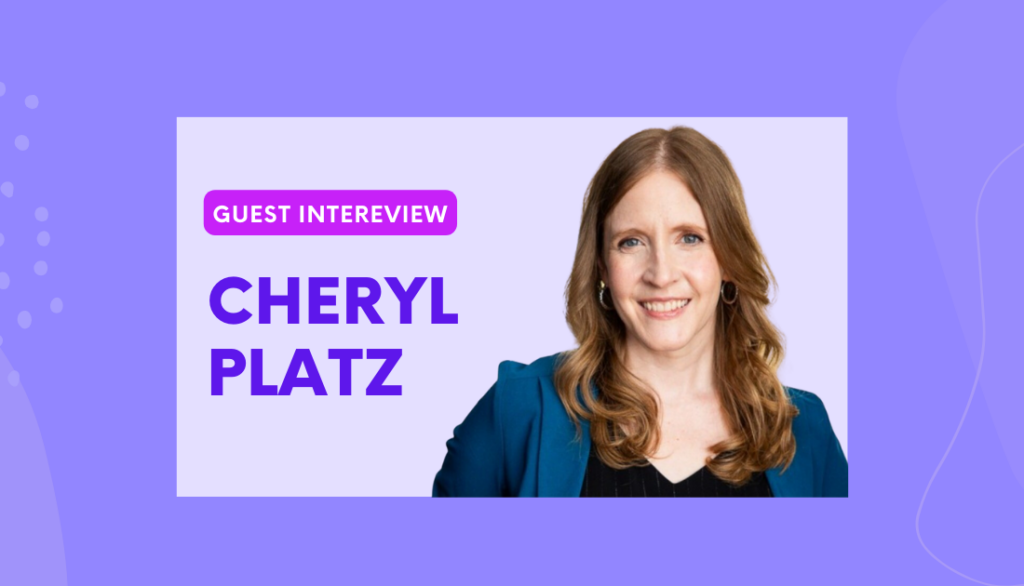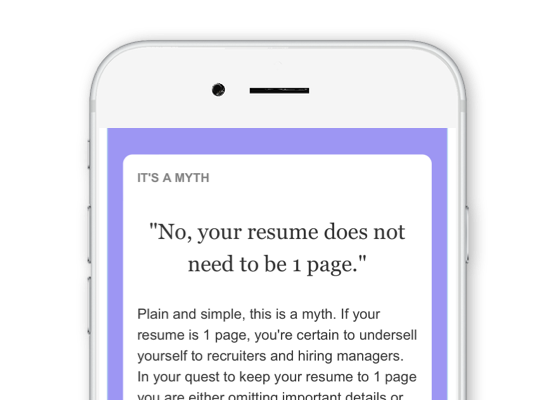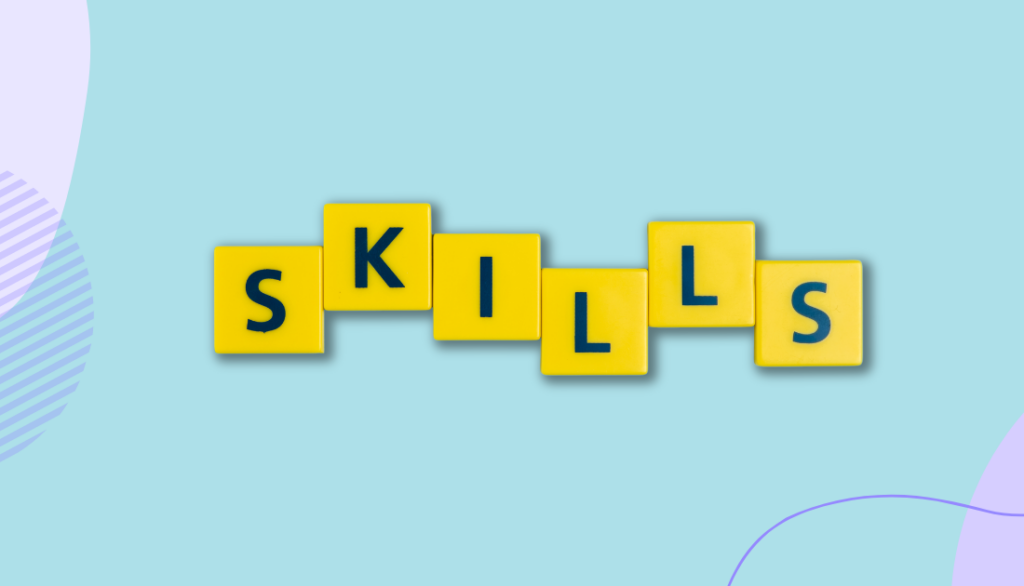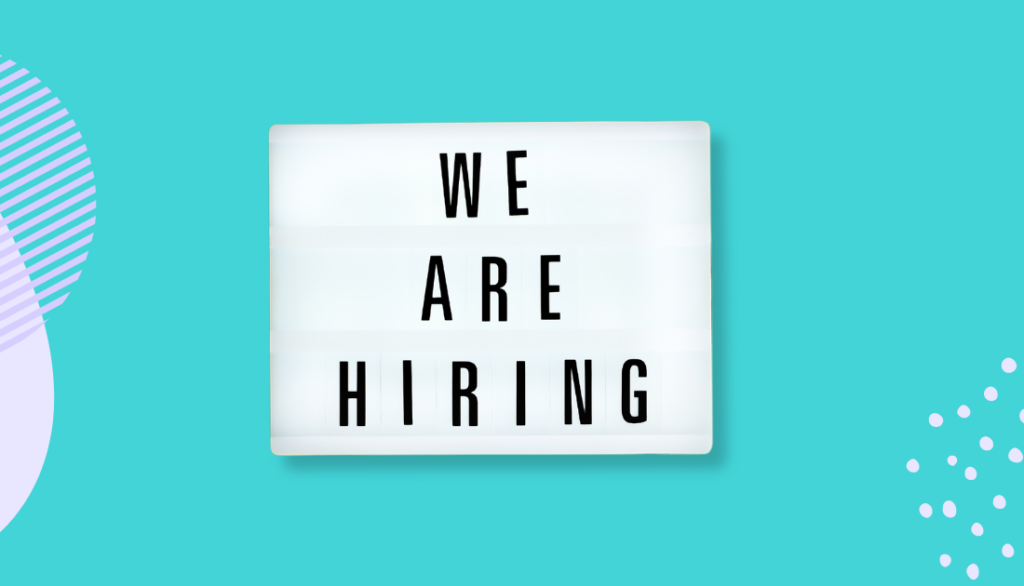Episode 67
2 questions to overcome career overwhelm and focus on what you can control
14 min listen
Episode 52
14 min listen

Listen to the Episode
Episode Summary
Feeling stuck in your career or job search? Overwhelmed by the unknowns? This episode offers a practical tip to help you regain control and make intentional decisions. By focusing on what you can control rather than fixating on outside factors, you can move forward with clearer direction.
Learn how to strategically apply to jobs, improve the quality of your application materials, and leverage your network for a competitive edge. Take charge of your attitude and choose who to listen to, minimizing information overload. This episode provides actionable advice to navigate career challenges and avoid getting caught in a cycle of frustration.
Whether you’re seeking a new job or looking to advance in your current role, this tip will help you break through the barriers and gain momentum in your career journey. Tune in for practical insights to navigate career decisions and take intentional steps toward your professional goals.
Create your dream career, and life
- Book a free Career Strategy Call to learn how we can help you
- Get our free Career Roadmap to help you navigate your career
- Check out Career Strategy Lab, our 3-month career coaching program
Discussion Questions About The Episode
- What are some examples of situations in your career or job search where you have felt overwhelmed or stuck due to external factors beyond your control?
- Reflect on a recent career or job search challenge. How did you initially react, and did your focus tend to be on things you could not control? What aspects were within your control, and how did you address them?
- Think about your habitual patterns when facing career obstacles. Do you tend to prioritize action on factors within your control, or do you find yourself fixating on external variables beyond your influence? Why do you think this is the case?
- Consider the factors within your control during your job search or career advancement. Are there areas where you can improve the quality of your efforts, such as the number and specificity of job applications, the thoroughness of your resumes and cover letters, or the strategic alignment of your job choices with your experience?
- When consuming information and advice related to your career, whom do you typically listen to and how much weight do you assign to their guidance? Reflect on how your sources of information and the balance between gathering knowledge and taking action may influence your career progression.
Episode Notes & Links
Episode Transcript
Sarah Doody [00:00:00]: Hey there. I’m Sarah Doody, host of the Career Strategy Podcast. Many professionals are seeking more impact, flexibility, growth, and let’s face it, getting paid what they’re worth. But how do you unlock this in your career? It starts with strategy. I’m taking you behind the scenes of what’s working for my career coaching clients. You’ll hear strategies news and actionable, yet sometimes against the grain, advice for how you can be the CEO of your career and stop in Mondays. Ready to level up your career? Let’s get after it. Welcome back to another episode of the Career Strategy Podcast, I’m thrilled you have joined us.
Sarah Doody [00:00:44]: I hope you’re having a great day so far. Now today, I have a tip for you that is going to help you get unstuck if you feel like you are at a crossroads with a decision or a situation and you can’t figure out that 1st step to take because you’re overwhelmed with options, you keep playing, you know, what ifs over in your mind or you just are worrying, what if I make the wrong decision? This tip I’m gonna give you It’s going to help you make clearer and more intentional decisions about how to move forward in whatever situation you are stuck in. So how did this episode come to be? I just wanted to touch on this because maybe you can relate to some of these situations. So I’ve noticed a theme in the questions people are asking me and what people are posting on LinkedIn, and that theme is that a lot of People are burnt out with their career or their job search. So maybe you’re in a situation where You’ve been working in your career for 10, 15, 20 years, and you like what you Doody, but maybe you feel like you’re at a Plateau, and you’re not sure what direction to go because thankfully for you, you have a lot of great experience and skills that are in demand, so you could go in a lot of directions. Actions, but because of this, you don’t even know where to start when it comes to thinking about what job might I want next. What do I actually wanna do if I could write my own future? On the flip side, maybe you are in a job search right now, and you’re applying to jobs, and maybe you’re getting interviews or you’re not getting interviews, but maybe you’re not getting offers. And you’re just Stuck and you’re frustrated and you’re trying to figure out what is going on.
Sarah Doody [00:02:38]: So here’s the tip. I want you, for whatever situation you’re in, to stop focusing on what you cannot control, and instead focus on what you can control. Now let’s imagine you’re applying for a job right now. Either you’re doing that right now or you can relate to this because you’ve done it in the past. Now if you’re not getting interviews or not getting offers, It’s very easy to fixate on the things such as well, it’s hard to apply to jobs because job descriptions are so confusing and they’re not well written, and I don’t know what the company is really looking for. Or you blame the fact that you’re not in interviews or offers on the hiring process, and you say, you know, it’s not fair or it’s broken or it’s biased or whatever word you wanna used to describe how you feel about the hiring process. Right? You could also be blaming it on things like, You know, you feel like the interviewer didn’t do a good job or they rushed it. Like, all of these things that I’m going through are examples of Fixating on things you cannot control.
Sarah Doody [00:03:52]: So you cannot control the quality of job descriptions. You can’t control the hiring process. You can’t control how you’re treated in interviews. Right? You can’t control whether or not you got the job whether or not people give you feedback about the interview or your resume or something like that. These are all things that are not within your control. Now is it frustrating? Yes. And if you want to make a point in your career to try and make a difference in the job search, or quality of job descriptions or hiring. That is awesome.
Sarah Doody [00:04:31]: And Maybe you don’t need to focus on that right now. Maybe wait to be the champion for those things until after you are hired because Fixating on these things, on these variables that are not within your control is going to just fuel the fire of frustration that is burning within you, and more importantly, it is distracting you from taking action on the things that you can troll. You know, it’s it’s often easier to criticize than to do the hard work to take action on things that are within your control. So Let’s go back to our example of the job search and think about, okay, in all the variables involved in a job search, What are examples of things that are actually in your control? So some things that come to mind for me are How many jobs you apply to? Many candidates, maybe you’re guilty of this, think that you’re going to have better chances if you apply to hundreds of jobs. Just keep applying and playing the numbers game. From what I’ve seen, that is not necessarily true, and that’s something you You can control how many jobs you apply to. You choose if you hit apply for the jobs you see, and People that I see who get interviews and offers more quickly are the ones that are more strategic with the jobs that they apply to. And they might, in the long run, applied to fewer roles, but they’re applying to more of the right roles with Resumes and work portfolios or presentations or examples that are higher quality, and as a result, They get interviews faster, and they don’t need to apply to hundreds of jobs.
Sarah Doody [00:06:19]: So how many jobs you apply to is within your control. What else is within your control? The quality of your resume, of your LinkedIn profile, of your cover letter, of your portfolio, of even cold messages that you send to recruiters and hiring managers and things like that. All of that is within your control. Unfortunately, a lot of candidates just kind of rush through these things and tick the box of having it complete, but don’t focus on quality. And it’s not good enough just to finish your resume if it’s not leading to interviews. Right? So thinking about, did you just rush to tick the box of completing your resume, or updating your LinkedIn and all that, or did you really take the time to go through the quality of Those career assets are career materials as I often refer to them. What else can you control? You can control which jobs you apply to. Right? We kinda Covered this in the first question, but are you applying to jobs at companies where you know people in industries where you maybe you already have experience.
Sarah Doody [00:07:34]: Those are examples of where those 2 things might give you an edge over other candidates. You know, If someone applies to a health care company as a project manager and they actually have previous experience in a health care company and some other project manager applies who does not have experience in a health care company. Guess which candidate might be more desirable? Even if both candidates have the exact same qualifications side by side. The one with the health care experience may have an edge. So for you, think about if you have transferable experience from other industries, Maybe think about applying to jobs in those industries. Even if you don’t wanna work in those industries forever, maybe it is a stepping stone to the job you want 2 years from now or 12 months from now. Alright. What else can you control? Whether or not you follow-up after interviews, whether or not you send a thank you, whether or not you send a cover letter.
Sarah Doody [00:08:40]: Even if you think these are dead or are from the seventies or something, cover letters, thank you notes, all of this. They can still make the difference because What does, for example, sending a thank you email do? It helps you stay top of mind. It helps you stay visible even after your interview, and sometimes being more visible and helping people remember or that you exist can make the difference between moving on in the interview or hiring process or not. What else can you control? Your attitude. You can control what you think, and how you think impacts how you behave, and how you behave impacts the results in whatever you’re going after. So I really encourage you to look at your attitude to the whole job Sarah, and you might even even if you deep down are frustrated, okay. That’s fine to acknowledge that, but find ways to find the positive in this situation. Imagine how you will feel when you do get interviews, views when you do get job offers, when you have been in that role 30 days, 90 days, etcetera.
Sarah Doody [00:09:56]: Really, really check your attitude though because that has a domino effect on your behavior. And when you do things and take action, that’s when you are able to get the results you’re looking for. Right? Alright. Last 3 things here. What can you control? Who you listen to. Right? You were probably guilty of for some area of your work or personal life consuming and probably overconsuming advice from random people on the Internet that you Don’t even know if this advice works or not. You just saw it and it had 1,000 likes, so you assume it’s true. Right? So think about who you’re listening to.
Sarah Doody [00:10:34]: And if you need to turn down the volume or completely mute some people because You don’t wanna overwhelm yourself with too much advice because then you’re just gonna be swirling in it, and you’re not gonna take action, and you’ll be right back to where you were in the beginning. Another thing, what you consume on social media, on podcasts, etcetera, kind of in parallel with this last point, there is a time to Be in information gathering mode, and there is a time to take action. And at some point, You can’t do both of those. You have to shift the balance. Think to yourself, am I spending too much time in research, and information gathering mode, and should I allocate some of that time and energy to actually taking action. Right? And so that’s it. What can you control? What can you not control? Separating those things are how you are going to be able to get unstuck and literally feel less overwhelmed because now you have things that are within your control that you can actually do to hopefully change the outcome of whatever situation you find yourself in. I hope this tip was helpful.
Sarah Doody [00:11:51]: I hope you can use it in a variety of parts of your work and your life. And If you think of people in your life that are maybe stuck in a situation right now, send this to them. It’s so simple. It is not going to be very long for them to listen to this super short episode. So share it with them, and then have a conversation with about it, and maybe you will be able to help each other get unstuck from whatever situation you find yourself in right now. Alright. Thanks for listening to this episode. By the way, I would really really appreciate it if you could right now hit pause, take literally 10 Sarah to give this podcast a rating.
Sarah Doody [00:12:35]: Even the star rating is fine. Don’t feel pressured to have to type a review out or something. Thing. Those star ratings mean so much and help get this podcast recommended to other people who might find it useful in their career. So that’s all for today. I will see you next week for another episode. Talk to you later. Thanks for listening to the Career Strategy Podcast.
Sarah Doody [00:13:01]: Make sure to follow me, Sarah Doody, on Twitter, Instagram, YouTube, or LinkedIn. If anything in today’s episode resonated with you, I’d love to hear about it. Tag me on social media or send me a DM. And lastly, if you found this Episode helpful. I’d really appreciate it. Either share it with a friend or give us a quick rating on Spotify or review on Apple Podcasts. Catch you later.













